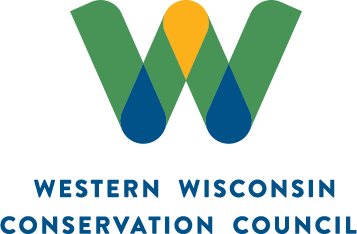By Mary Hookham for WWCC
A partnership between the University of Wisconsin-River Falls and Western Wisconsin Conservation Council is being put to work in the name of conservation. As WWCC’s members and conservation acreage grow, the university is studying well water to assist in this work on farms.
“The council is very interested in making sure all of its members are comfortable working with the university,” Dr. Jill Coleman Wasik, associate professor at UW-River Falls, said. “By testing water in the area, we can formulate better, more tailored conservation practices.”
Coleman Wasik is heading up the study to test private wells for members of the farmer-led watershed conservation group. She said WWCC reached out to her a few years ago to obtain an unbiased third party to test wells and keep the data anonymous.
“Confidentiality helps encourage members to participate,” Coleman Wasik said.
Testing is important so members know what their nitrate levels are, both on their own farms and in their region. If they know the makeup of the groundwater, farmers can figure out the best land use practices to produce beneficial short-term and long-term effects.
“People not only have a sense of what their well water is like at that one point where the test was done, but they also get a better sense of the big picture of wells and how they can fluctuate from season to season and year to year,” Coleman Wasik said.
While some of the wells tested so far are very stable, others are highly variable. Farmers with high concentrations of nitrates especially need to keep tabs on those concentrations, she said. Studies on the long-term effects of consuming water with high nitrates indicate chronic negative health effects.
“I hope that through this partnership, we can help the members who are really struggling with high nitrate levels,” Coleman Wasik said. “Sometimes the only option is to drill a new well. If we can figure out why these wells have high levels of nitrates, we can identify solutions to help.”
WWCC President Todd Doornink, a dairy farmer, appreciates the work being done by Coleman Wasik and her colleagues.
“Confidential testing aids in the creation of a safe forum for farmers to discuss best management practices. Farmers discuss practices that work and do not work, and then help and encourage each other to try new things,” Doornink said.
“It was a tough year to test wells because of the pandemic,” he said. “We were only able to get one test, but it was better than nothing.”
When the group started testing wells a few years ago, each was tested four times. Now the group tests stable wells annually and variable wells more frequently. Coleman Wasik’s research shows that the deeper a well, the fewer the nitrates, and the more dissolved salts present, the higher the nitrate level.
Coleman Wasik is exploring the effects of a wet year since the end of 2018 and last year had heavy precipitation in western Wisconsin and throughout much of the state. She is grateful WWCC has a long-term vision for its members because that helps everyone see trends in the data.
“I can't overstate the importance of having long-term data,” she said. “Sometimes weather can add variations to research results.”
Removing those variations is important to distinguish what land practices might affect groundwater quality, she said. Farmers could implement lots of great practices, but if the weather works against them, they will not see good results.
Coleman Wasik said her short-term goal with water testing is to help WWCC make good land practice decisions. Her long-term goal is to tailor land practice recommendations to each specific farm.
